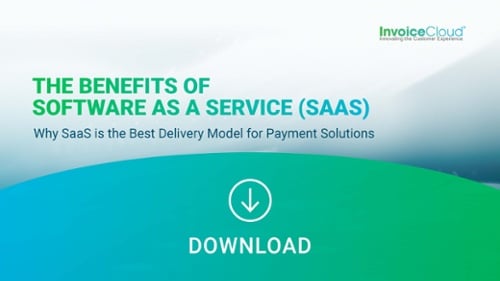Software as a service (SaaS) has numerous benefits that make it the preferred software choice for many organizations. Beyond the secure and highly configurable nature of SaaS, cloud-based solutions offer software scalability that on-premises and hosted software simply cannot.
When we talk about SaaS being scalable, we’re referring to its capacity to expand as your organization’s user base grows. Depending on how usage grows (increased customer or admin usage or maybe a large volume API) the infrastructure can adjust to meet the demand – all while continuing to perform as well as, or better than, it does today.
In other words, if your organization hopes to grow, you need a solution that has the capacity to grow with it. And unlike on-premises or hosted software, SaaS offers that room for expansion.
Where Does Hosted Software Fall Short with Scaling?
This lack of software scalability that comes with on-premises and hosted options could be standing in the way of larger organizational growth. Since on-premises and hosted solutions are built on individual stacks of code for each client, software upgrades become a manual process for both the provider and your organization.
Not only does this create a burdensome workload for your staff, but service issues may arise if your chosen system can’t keep pace with company growth. This potential spike of service issues could then negatively impact your customer satisfaction and even contribute to unwanted churn.
Scaling issues aside, on-premises and hosted solutions can present a variety of other organizational challenges. For instance, since system upgrades can’t be rolled out automatically (like they are with SaaS products), organizations are forced to wait for much-needed updates, simply because the on-premises providers can’t flip a switch and release those updates simultaneously.
In contrast, SaaS solutions automatically roll out new security patches to all clients at the same time, which ensures your organization is offering the best (and most compliant) in data security. By their very nature, on-premises and hosted solutions cannot offer this far-reaching level of security or PCI compliance.
Why Payments Need Software Scalability
Where on-premises and hosted solutions fall short for scaling capabilities, SaaS solutions tend to excel. By their very nature, cloud-based software is ideal for accommodating growing or fluctuating user bases.
Here are a few reasons why SaaS is uniquely beneficial to the payments industry:
 Improved User Experience
Improved User Experience
When on-premises or hosted software are unable to accommodate a growing user base, you often end up with an out-of-date user experience and, therefore, more frequent service issues. With the scaling capabilities of SaaS, customers can count on uninterrupted service and a consistent, high-quality user experience. This means that customer satisfaction won’t be negatively impacted, a factor that lessens your organization’s battle with customer churn significantly.
 Importance of Security and Compliance
Importance of Security and Compliance
Ensuring the security of customer data is one of the most important tasks for any organization. And when it comes to payments, making sure you have the latest security patches to remain compliant with industry standards is critical. More challenging still, your organization needs to continually ensure this top-tier level of data security, even as usage grows. Multi-tenant architecture creates a single instance of a software application that serves multiple customers, as opposed to a single-tenant model hosted in the cloud. For instance, InvoiceCloud’s PCI Level 1 compliant solution offers a variety of secure payment options, including AutoPay, Interactive Voice Response (IVR), and One-Click Pay, so billers can drive e-adoption and self-service payments without having to worry about data leaks.
 Pace of Innovation
Pace of Innovation
With technological innovations and customer needs changing rapidly, your organization needs the ability to keep up with competitive industry leaders. True SaaS delivers continuous improvement and requires no maintenance on your part. Since only one version of the software exists, it is simple and straightforward to roll out frequent and concurrent upgrades — so new and existing clients are always current.
 Seasonality of Billing
Seasonality of Billing
Hosted solutions begin with individual stacks of code for every client – whereas SaaS solutions start with the same base code that’s configured to the unique needs of each organization. In terms of scaling, this means your SaaS provider can easily scale up or down without making customizations to the platform. Billing and payments, for instance, can be seasonal depending on the industry. That means your needs this quarter might not reflect your needs next quarter. With SaaS, you can scale up to meet growing needs and just as easily scale back when things slow down.
The Benefits of SaaS Billing and Payment Solutions
When it comes to choosing software vendors, it’s critical your organization takes scaling capabilities into consideration. If your organization hopes to grow – and not only gain customers but retain them – then the superiority of SaaS scaling cannot be overstated.
To learn more about the scaling capabilities of InvoiceCloud’s SaaS software, schedule a demo today. Or download our ebook, The Benefits of SaaS, to learn more about Software as a Service.

